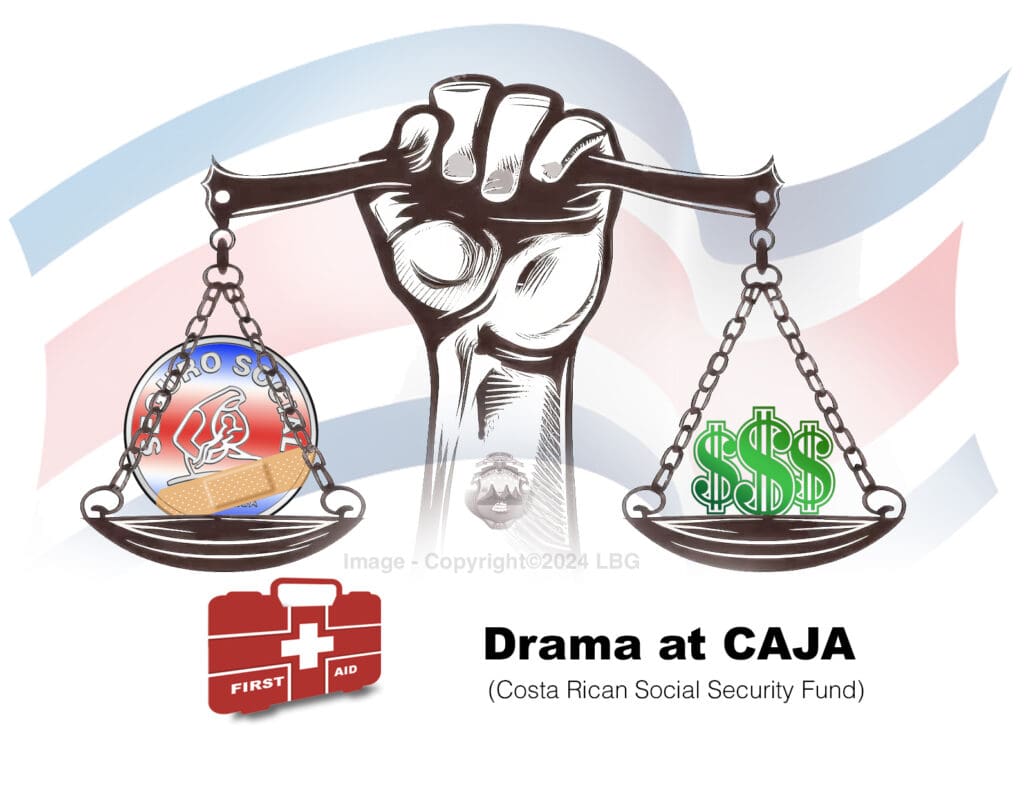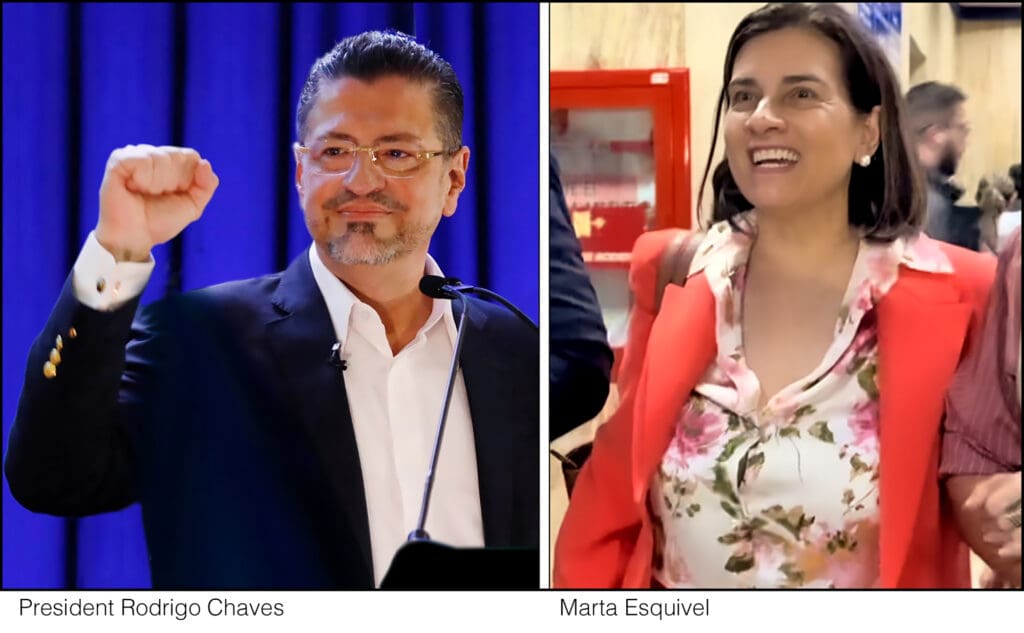
In Brief:
- Twenty-eight raids.
- Eight arrests. (and releases).
The ongoing attempts to more equitably reorganize 138 Ebais (Clinics) service contracts are drawing intense scrutiny, triggering a wave of attacks, counterattacks, and renewed confrontations among political factions.
The recent arrest and release of Marta Esquivel, Executive President of CAJA – the Costa Rican Social Security Fund – and a pivotal government figure, has only exacerbated tensions. Her disgraceful transport in a Judicial Investigation Agency (OIJ) vehicle—often referred to as a “dog catcher’s van”—has amplified the drama surrounding the situation. Channel 7, known for its strong opposition to President Chaves, was tipped off just in time to capture the arrest and the three-hour bumpy ride back to San Jose from Perez Zeledon with their camera crew in tow. We have all come to expect such trashy behavior from Channel 7, whose prominent favored visuals consist of voyeuristic revictimization.
The so-called “Barrenador Case” is deepening the divide between political rivals. The entrenched “old boys’ club” is once again mobilizing to defend the status quo, perpetuating patterns of corruption and a rigged system. Meanwhile, the compliant merchants of venom in the media are toeing the line. Aspiring influencers are jostling for attention, all eager to appear the most knowledgeable despite their tribal loyalties undermining any semblance of objectivity. While some outrage is genuine, much of it is performative and self-serving.
President Chaves is standing firm, publicly calling out the usual suspects who seem determined to undermine him and his appointees, who are genuinely striving for meaningful reform. At this point, most Costa Ricans are on his side despite the negative impression management of pundits and media.

This scenario is a vivid display of political theater, complete with dubious math and exaggerated narratives. Following his unexpected victory in the last election, Chaves has faced a barrage of politically motivated attacks from those who were sidelined. Whenever he or his appointed leaders, like Marta Esquivel at CAJA, post a win on the significant-accomplishment scoreboard, opponents and their allies in the media unleash smear campaigns or orchestrate distractions. This includes the troubling use of the judicial system as a political weapon.
Let’s leave it at that for now and stay focused on something closer to those currently enrolled in or soon to be enrolled in CAJA.
I want only to calm nerves about the prickly subject of the ongoing pension mandate expats have been forced to enrol in since March of 2022.
But I kindly ask dear reader to please take two minutes to read my previous article on the subject:
CAJA Healthcare Monthly Premium Issues
Reminder: When individuals apply for legal residency in Costa Rica as Pensionados, Rentistas, or Inversionistas, their approval comes with three specific conditions: they have to pay three government fees, enroll in CAJA (A.K.A. Costa Rican Social Security Fund), and have their photo taken for the eventual Dimex (residency) card.
Until March 13, 2022, enrollment in CAJA was solely for healthcare purposes.
However, effective March 14, 2022, a poorly conceived mandate was introduced, requiring all new enrollees in CAJA to also enroll in the Costa Rican pension plan. This change effectively doubled the monthly premiums for most expat enrollees. Since then, my Gmail inbox has been inundated with emails expressing protests and urgent requests for action regarding this situation.
I understand that many affected by this mandate may feel despair in light of last week’s dramatic developments involving CAJA’s top management.
I want to reassure you that I am well-acquainted with Sra. Marta and several other senior department heads at CAJA.
(Much more on that when the time is appropriate).
Based on my intimate knowledge, I remain optimistic that the pension mandate for expat enrollees will be rescinded. Although this recent drama may delay progress by a few months, I know for a fact that internal initiatives are underway to address the pension mandate issue.
Moreover, I’m hopeful because any changes to this mandate do not require action from the Costa Rican Congress—a political snake pit that often leads to prolonged delays. The responsibility for amending or eliminating the pension mandate lies strictly within CAJA. Once they finalize the internal details, they have the authority to implement changes without congressional approval.
CAJA already has a formal proposal to eliminate the pension mandate specifically for Pensionados. However, this does not currently extend to Rentistas or Inversionistas. Due to semantics (“Rentista” and “Inversionista” do not sound like “Pensionado”), CAJA management did not comprehend that foreign migrants applying for residency as Rentistas or Inversionistas have also contributed to both public and private pension funds for many years before arriving in Costa Rica. Essentially, they must all be considered pensioners.
Therefore, under the Costa Rican constitution, it is illegal to mandate their contributions to the Costa Rican pension plan—except for Inversionistas who own active businesses in Costa Rica. In their case, the pension contributions will take on a different form.
I will keep you updated as this situation evolves, and I remain confident in a favorable resolution.
In the meantime, I would like to cheer you up more with this: The Greatest Thing About Costa Rica
Pura Vida!
Laura


